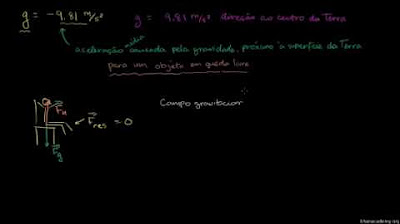G.E Moore's Non Naturalism (Open Question Argument & Intuitionism: Metaethics)
Summary
TLDRThis video explores G.E. Moore's non-naturalism in metaethics, specifically focusing on Moore's open question argument and intuitionist theory. The discussion begins with an explanation of non-naturalism, which argues that moral terms cannot be defined in natural terms. Moore's open question argument illustrates the flaws of moral naturalism, showing that questions about whether natural properties like pleasure are 'good' remain open. The video also touches on Moore's intuitionism, suggesting that we recognize 'good' through intuition, although this view is critiqued for lacking empirical evidence and consistency across individuals.
Takeaways
- 📚 Non-naturalism is a branch of cognitive ethics, which asserts that moral statements are factual and either true or false.
- 🌱 Cognitive ethics can be divided into two branches: naturalism and non-naturalism. Naturalism defines moral terms using natural properties, while non-naturalism rejects this.
- 🛑 G.E. Moore argued against defining moral terms with natural properties, claiming that this leads to the naturalistic fallacy.
- ❓ Moore's Open Question Argument suggests that reducing moral properties to natural ones leads to an open, not closed, question, proving that moral and natural properties aren't synonymous.
- ⚖️ The Open Question Argument attempts to show that moral realism (in its naturalist form) is false by demonstrating the failure to equate 'good' with any natural property.
- 🧐 Moore’s intuitionism claims that moral terms like 'good' are simple and indefinable, much like the color yellow, which we recognize intuitively.
- 🤔 A challenge to Moore’s intuitionism is the existence of moral disagreement, which raises the question: if morality is objective and intuitive, why don’t all people recognize it in the same way?
- 🟡 Moore uses the analogy of recognizing 'good' like recognizing 'yellow,' but critics like Nietzsche argue this analogy doesn't work, suggesting potential 'ethical color blindness.'
- 🧠 Moore’s theory lacks empirical evidence for moral intuition, making it seem metaphysical and less scientifically grounded.
- 🚫 The Open Question Argument has been criticized for question-begging, assuming its conclusion (that natural properties aren’t identical to moral ones) without sufficient proof.
Q & A
What is non-naturalism in cognitive ethics?
-Non-naturalism is a branch of cognitive ethics that argues moral terms cannot be reduced to natural terms. It posits that moral truths cannot be found in natural properties.
How does cognitive ethics relate to moral language?
-Cognitive ethics is the idea that moral language is truth-apt, meaning that moral statements are either true or false, and morality exists in an objective world.
What is the naturalistic fallacy according to G.E. Moore?
-The naturalistic fallacy, according to G.E. Moore, occurs when someone tries to define a moral term like 'good' using a natural term, such as pleasure. Moore argued that this is a mistake because moral properties cannot be reduced to natural ones.
What is the core idea of Moore's open question argument?
-Moore's open question argument suggests that reducing a moral property to a natural property is flawed because it always remains an open question whether the natural property is truly good. This indicates that moral and natural properties are not equivalent.
What is an example used in the open question argument?
-An example used is: if eating fast food is pleasurable (a natural property), one might ask 'Is eating fast food really good?' This question remains open, showing that 'good' cannot be synonymous with 'pleasurable.'
How does Moore's intuitionist theory explain moral recognition?
-Moore’s intuitionist theory argues that moral terms like 'good' are indefinable and simple. Humans recognize them through moral intuition, much like how we recognize the color yellow without needing further definition.
What are the criticisms of Moore's open question argument?
-One criticism is that Moore's open question argument begs the question by assuming, without proof, that asking whether a natural property is really good is an open question. This undermines the argument's logical foundation.
Why is Moore's intuitionist theory criticized for its explanation of moral disagreements?
-The theory is criticized because if all humans have a moral intuition to recognize what is good, it doesn’t explain why people have moral disagreements or dilemmas, suggesting that moral recognition is not as clear-cut as Moore claims.
How does Nietzsche criticize Moore’s analogy between 'good' and 'yellow'?
-Nietzsche criticized Moore’s analogy by suggesting that, unlike the universal recognition of the color yellow, people perceive 'good' differently. This indicates that morality might not be as universally intuitive as Moore suggests.
What is the issue with basing objective moral truths on intuition?
-The problem is that there is no empirical evidence for moral intuition. Critics argue that basing objective moral truths on an unproven metaphysical intuition is problematic and lacks scientific support.
Outlines

Этот раздел доступен только подписчикам платных тарифов. Пожалуйста, перейдите на платный тариф для доступа.
Перейти на платный тарифMindmap

Этот раздел доступен только подписчикам платных тарифов. Пожалуйста, перейдите на платный тариф для доступа.
Перейти на платный тарифKeywords

Этот раздел доступен только подписчикам платных тарифов. Пожалуйста, перейдите на платный тариф для доступа.
Перейти на платный тарифHighlights

Этот раздел доступен только подписчикам платных тарифов. Пожалуйста, перейдите на платный тариф для доступа.
Перейти на платный тарифTranscripts

Этот раздел доступен только подписчикам платных тарифов. Пожалуйста, перейдите на платный тариф для доступа.
Перейти на платный тарифПосмотреть больше похожих видео

Verifying inverse functions by composition | Mathematics III | High School Math | Khan Academy

Manipulating Functions Algebraically and Evaluating Composite Functions

Composition of Functions - Grade 11 - General Mathematics

I travelled to a RANDOM Railway Station... beginning with A!

Física - Considerando G o valor do campo gravitacional da terra (Khan Academy)

Operasi Aljabar Pada Fungsi

Composite Functions
5.0 / 5 (0 votes)
